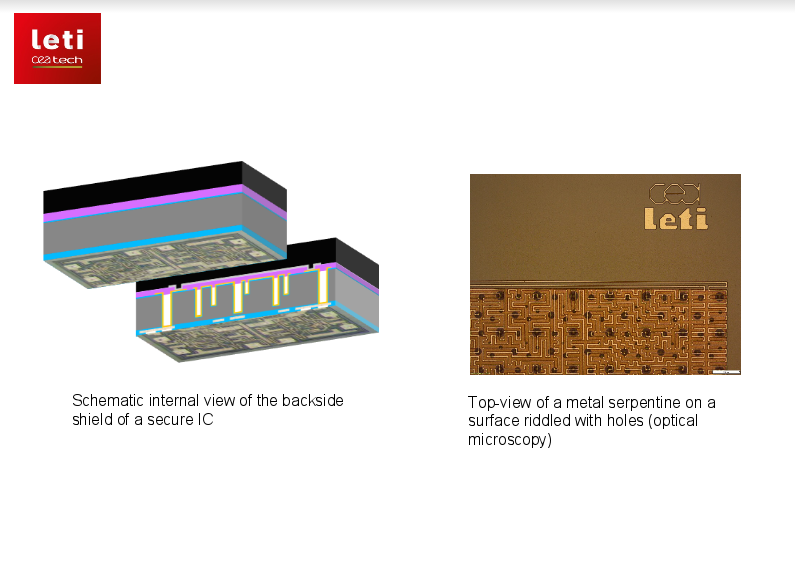GRENOBLE, France – March 8, 2017 – Leti, a research institute of CEA Tech, today announced it has developed a shield that can help protect electronic devices against physical attacks from the chips’ backside. Integrated circuits (ICs) embedded in connected objects, smart cards or other systems dealing with sensitive data would benefit from this technology, which brings more privacy, safety and security to the users.
Physical attacks may occur when hackers have access to the device and can exploit weaknesses of the embedded IC to steal sensitive information or to corrupt its functioning. The shield proposed by Leti protects chips from invasive and semi-invasive attacks by infrared lasers, focused ion beams (FIB), chemicals and other means.
The shield consists of a metal serpentine sandwiched between two polymers, one being opaque to infrared and serving as a physical barrier against FIB attacks. It also hides the design of the chips’ serpentine and combines with the polymer underneath to detect chemical attacks. Altering the serpentine typically triggers the IC to delete sensitive data.
The shield is fabricated using standard packaging processes, which demonstrates that hardware cybersecurity can be implemented at low additional cost. Leti’s research results will be presented at this week’s Device Packaging Conference in Fountain Hills, Arizona, in a paper entitled “Backside Shield against Physical Attacks for Secure ICs”.
“Implementation of multiple hardware and software countermeasures is making integrated circuits more secure, but the backside of a chip is still considered to be vulnerable to physical attacks,” said Alain Merle, Leti’s Security Strategic Marketing Manager. “Our team designed, fabricated and tested a novel protection structure combining several elements that will trigger an alert if hackers use the backside of a chip to access the active parts of the IC.”



















